TGIF :: Let's Dismantle the Stigma Around Not Drinking Already
Weekly drop #22 || It's high time we celebrate and support, not shame or shun, the healthy choice to take (any) break from booze.
Today marks the sixth anniversary of what I affectionately call “Choice Day,” the day I woke up to a pink dawn at Burning Man and declared no more. No more dimming. No more denying. No more ignoring. No more avoiding. No more pretending. The previous 48 hours had included the “last straw” in my crumbling marriage, a cold night alone under a spectacular 125,000-LED-lit tree, and a long overdue moment of pristine clarity: It was time to make some major life changes.
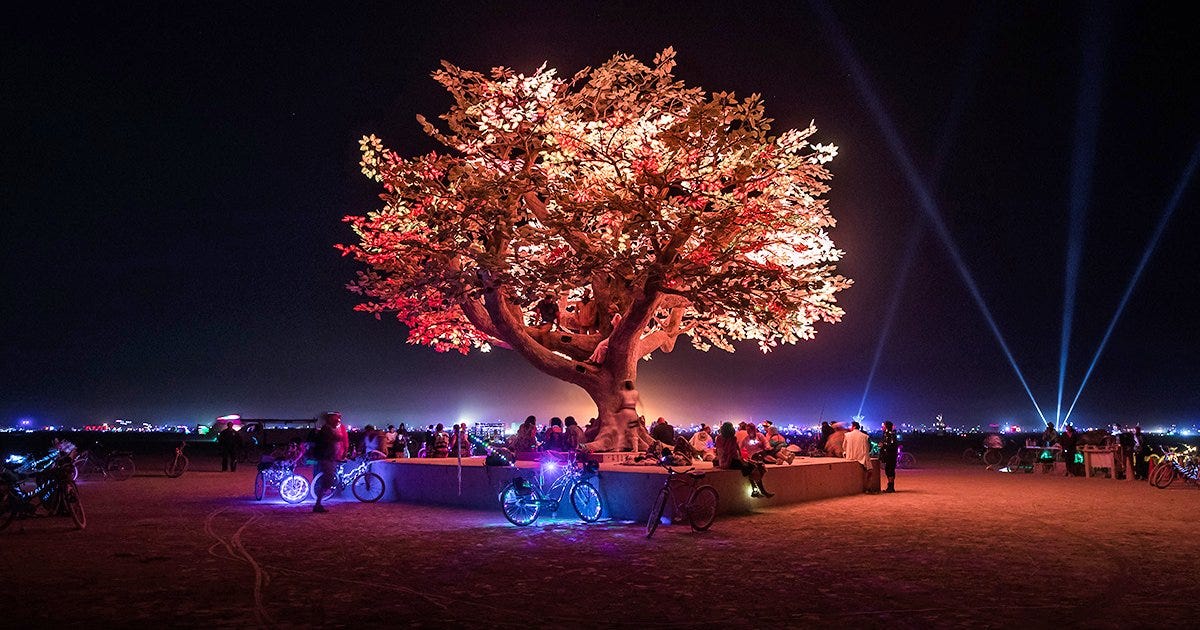
On that day, I also spontaneously started a 30-day break from all intoxicants (my dimmer of choice: daily “social drinking”). I wanted to navigate the weeks ahead without any regrettable kisses, texts, or signatures. Unbeknownst to me, that 30-day experiment was the first of many stepping stones on a transformative path I now call ClearLife—rivaling even the end of my marriage in its impact.
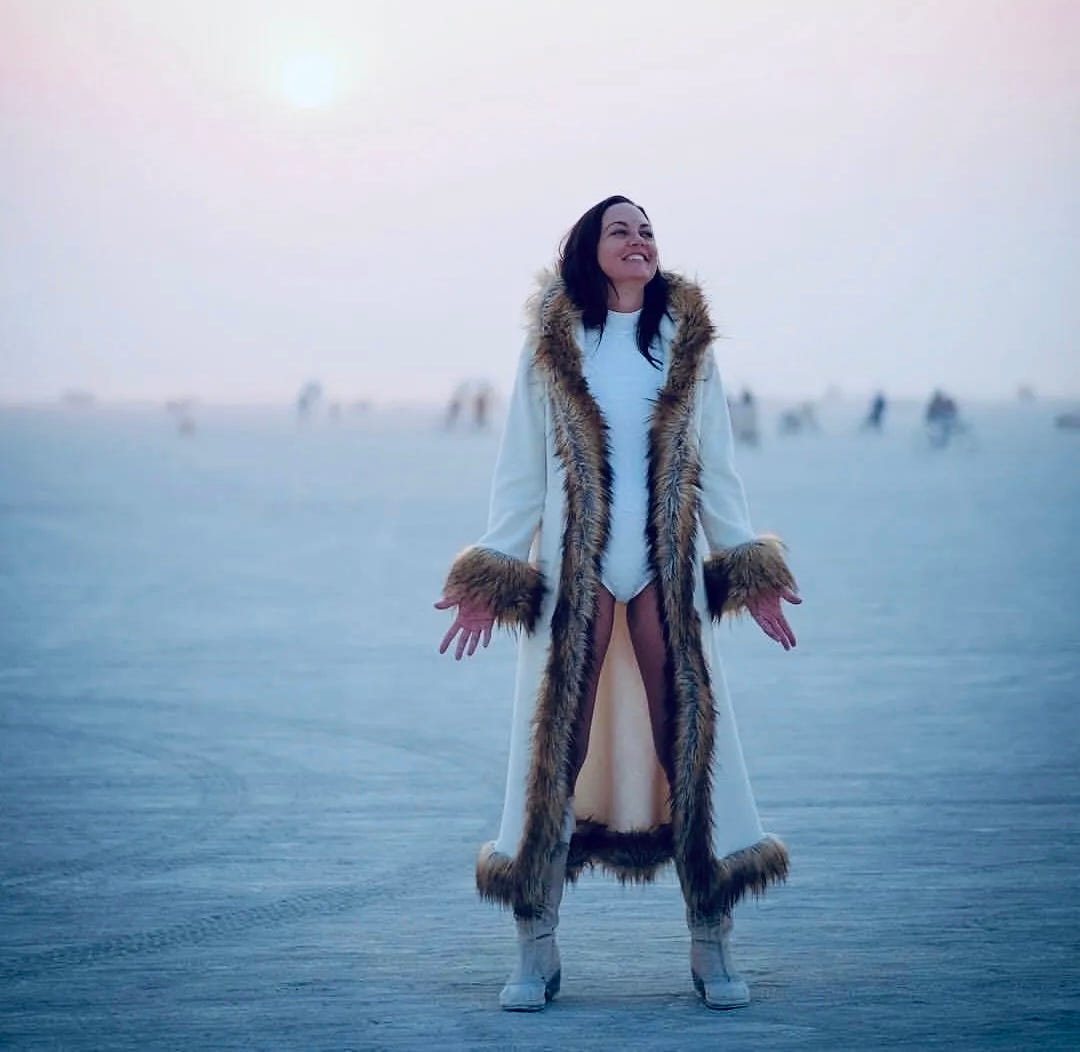
“I didn’t know you had a problem.”
In my initial weeks of clarity, I enjoyed some immediate physical benefits from abstaining from alcohol: better sleep, softer skin, whiter eyes, longer runs, and a prevailing calm—on most days. Yet, with life's concurrent changes came challenges, including confronting raw, often painful, emotions I hadn’t truly felt in years.
However, the social aspect proved most challenging. I continued to attend gatherings, dinners, and various social and professional events, assuming I could simply skip the alcohol, after all, who cares whether I’m drinking or not? But many did, and their reactions to my choice were unexpected and varied:
“Oh, I didn’t know you had a problem?”
“You’re not pregnant again, are you?”
“For real? Can’t you have just one?”
“But I never thought of you as an alcoholic?”
“Let me know when you’re done with this phase so we can drink together again, okay?”
At times I’d explain, other times deflect. Sometimes, I’d hold a drink I never sipped just to sidestep the topic. Occasionally, I shared how much I was enjoying the break before I realized discussing my choice needed the right moment, setting, and receptive ear. I wrote a bit about this and the righteousness I felt when framing out The Second Awareness (Choice):
“It infuriated me when people assumed my choice to not drink was because I had some kind of a problem. (It still amuses me to no end that alcohol is the only drug we need an excuse to not take.)”
Over time, the odd reactions ceased. Most people in my life support my choices and accept—even embrace—that I probably won’t ever drink with them again. Many are curious, wanting to better understand the why and the how. Some are experimenting with their own relationships with alcohol (or other dimmers) and I love the exchanges and mutual learnings among us.
Anyone who has taken a break knows that the social aspect of abstaining can be challenging. I’m not going to tackle the why—but you can read an insightful piece on adult peer pressure from none other than Annie Grace here if you like.
Stigma Erosion Since 2017
Fortunately, it’s getting easier to opt out of booze for any period of time. I have a few theories as to why:
1. Health Matters
The choice to not drink is increasingly viewed as a health-related decision rather than a sign of a disorder formerly known as alcoholism. This is in part fueled by growing awareness around the health risks of drinking thanks to reports such as No level of alcohol consumption is safe for our health from The World Health Organization (January 2023) and Canada’s even more widely publicized Guidance on Alcohol and Health, similarly stating the safest amount of alcohol is zero.
2. It’s Cool
Countless musicians, actors, and other celebrities are “coming out” as alcohol free and publicly celebrating their choices, serving as highly visible role models and helping us non-drinkers feel less weird.
3. The AF Beverage Market is Booming
Third, there are more alcohol-free drink options available than ever as the market continues to grow to consumer meet demand and demand for beer, the most widely consumed alcoholic beverage by volume continues to decline. Opting out of alcohol is actually trendy—and sales prove it.
Yet, we still have a ways to go.
One of you wrote to me this week:
“Even in *my* sober months, as I am about to engage this September, it kind of drives me bonkers when people suggest they don’t want to hang out with me until I’m drinking again. If you want you can quote me directly on that, as a person who enjoys drinking but also enjoys the respite as well. There aren’t any other healthy endeavors that people engage with the same way, like if I gave up cake for lent and someone was like, ok, see you after Easter when we can eat desserts again.”
Even well intended reporters seem to get missing the point.
For example, the San Francisco Chronicle ran an article last week: “Let’s stop calling them ‘mocktails.’” While I appreciate the writer’s efforts to address the arguably derogatory term “mock” in favor of terms similar to “alcohol free,” the piece then doubles down on shame or secrecy around ordering alcohol free drinks—in this case, with with the help of the establishment:
“[the bar owner] also suggests that bars refrain from using ‘alcohol-free’ or similar identifiers in the drink name — don’t call it a ‘non-alcoholic Negroni,’ for example — so that sober patrons can place their orders subtly. His staff is trained to never say things like, ‘You know that has no alcohol in it, right?’ when a non-alc[oholic] beverage is ordered.”
While there are exceptions (when someone isn’t ready to reveal a pregnancy, for example), we shouldn’t perpetuate outdated discomfort around the choice to abstain. I’d love to see more mainstream coverage on more relevant topics like: (1) addressing queries about the choice to not drink, (2) managing peer pressure with grace, or (3) how make alcohol-free guests feel welcome and cared for in social settings where others are drinking.
Practices in Support of Destigmatization
There are a few things we can all to do support a generally more positive and supportive environment for people who are choosing to drink less or not at all.
If you enjoy alcohol but want to support people who aren’t drinking:
“Vegan” / “Gluten Free” / “Alcohol Free”: Try to view the choice to not drink like any other health-related choice: personal, to support wellbeing, and an appropriate topic for negotiation. Can you imagine telling someone who just quit smoking cigarettes “Come on, just one?” or “Let me know when you’re smoking again so we can smoke together.”
Suggested Responses: inspired by Five Things To Say When Someone Isn’t Drinking, by Ariel Ng Bourbonnais:
“That’s great. Do you want to talk about it?”
“Why don’t we go to a cafe instead of a bar?”
“How are you feeling about it? What has changed for you so far?”
“How can I support you?”
“I’m proud of you. I’m here for you. I love you.”
If you don’t drink and want support FROM others when declining alcohol:
Invent a clever excuse: There is a lot of guidance out there on how to politely decline a drink (articles on this can be found here, here, and here), everything from “I’m on a prescription that I can’t mix alcohol with” to “I’m allergic” to “I’m training for an athletic competition.”
Tell the truth, as simply as possible: While excises are helpful, they’re often dishonest and again, just perpetuate outdated shame or secrecy around a healthy choice. My favorite responses these days include:
“No thanks, water is great for me right now.”
“I’m not drinking tonight, thanks.”
My Story: Secrecy → Ownership
In the early stages of my ClearLife journey, I lacked tools to gracefully handle alcohol-centric social events. Once, during an hour-long industry event in Las Vegas, I escaped to the bathroom no less than three times, just to be alone in a sealed stall and breathe between drink offer + small talk followed by drink offer + small talk.
One of the ways I muddled through was by faking drinking. I recall attending a fancy fundraising dinner in San Francisco in my first month of ClearLife. It was one of those black tie affairs with a subset of staff whose sole responsibility it was to ensure that there were no even partially empty wineglasses, for hours.
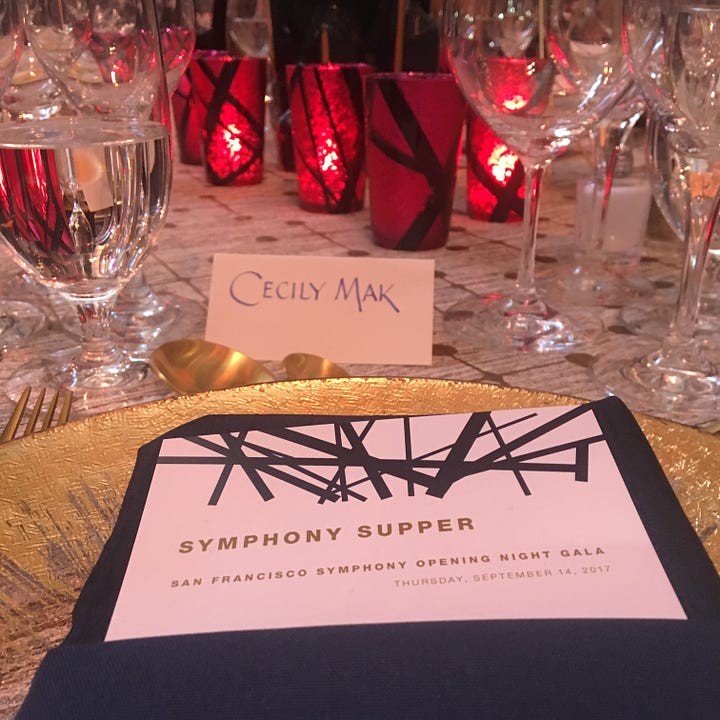
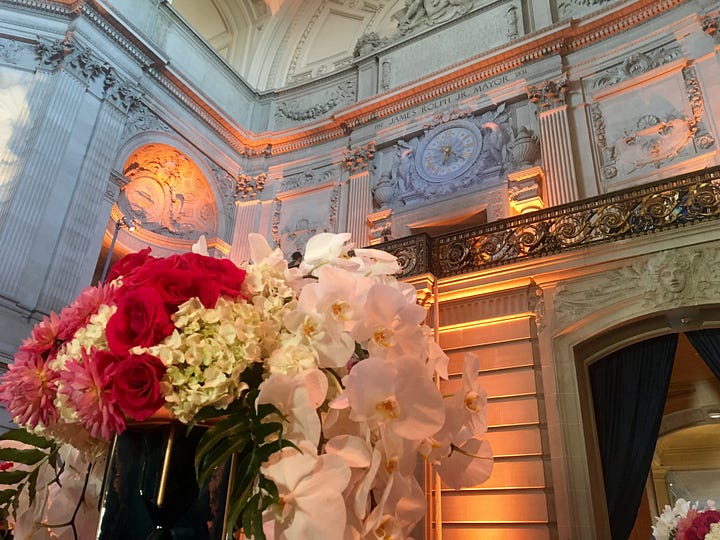
Not wanting to stand out, I watched the waiter pour my glass full of red wine at the beginning of the evening and let it sit there, untouched, all night. Better than explaining myself, I thought.
Oh, how things have changed.
Fast forward to April 2022: I was at a post-Wisdom 2.0 conference dinner with fellow speakers. Receiving my mocktail alcohol-free drink, adorned with rosemary and a sugared rim, it struck me how much it resembled a real cocktail. I experienced a jolt of panic—What if they think I'm drinking? This was a stark contrast to earlier years when I worked so hard to conceal my alcohol-free choices.
Mistakes I’ve Made So Maybe You Don’t
Apologizing for my choices. There was a time when I’d actually apologize for not drinking because friends or family told me it made them uncomfortable. I realize now this is ridiculous co-dependent people-pleasing behavior that’s comfortably in the rearview mirror.
Oversharing. No need to go on and on about how awesome not drinking feels with people who are actually drinking in that moment. Duh.
Not correcting assumptions early on. I’ve had people tell me they’ve excluded me from certain gatherings thinking I’d be uneasy around alcohol. I could have clarified sooner: I still love a good party, a fancy dinner that includes wine, and so on, I’ll just drink something else. Thankfully I’m often not alone in this choice. :)
Timidness around my choices. That whole faking drinking thing? Yeah, that’s over. These days there are always other guests opting out. The more open we are about our choices, the more comfortable and common they’ll seem.
In Sum
Taking a break from drinking—for any period—can be life changing, or merely a refreshing break! Whatever the reason, let’s together ease the social burden. No one should feel compelled to hide or justify a decision to abstain.
Much like cigarettes were once “cool,” with non-smokers feeling out of place, alcohol is no longer the default it once was. As we make informed decisions, a growing movement is taking hold. Whether you occasionally abstain or decide to quit for good, you're in great company.
Cheers to your journey.
Love. ❤️
Miscellaneous…
Our first Sangha Saturday will take place next weekend, on September 9th, via zoom. I’ll send an invitation with this title “Sangha Saturday” to all who’ve entered an email via this form. No need to prepare or bring anything other than yourselves. RSVPs appreciated. Next up, one IRL, in Mill Valley on September 30th.
My new favorite tea is Green Tea Super Antioxidant by Yogi Teas. Full of yummy herbs, it has an awesome taste while also working its magic.
Drama Free is possible! Nedra Glover Tawwab is all over my podcast library these days (thanks for the recommendation, Jen!). We’ll weave some of her perspectives into this month’s donation-based series from Wisdom 2.0: The Dance of Connection: How do we navigate and help heal adult-to-adult relationships? Register here.






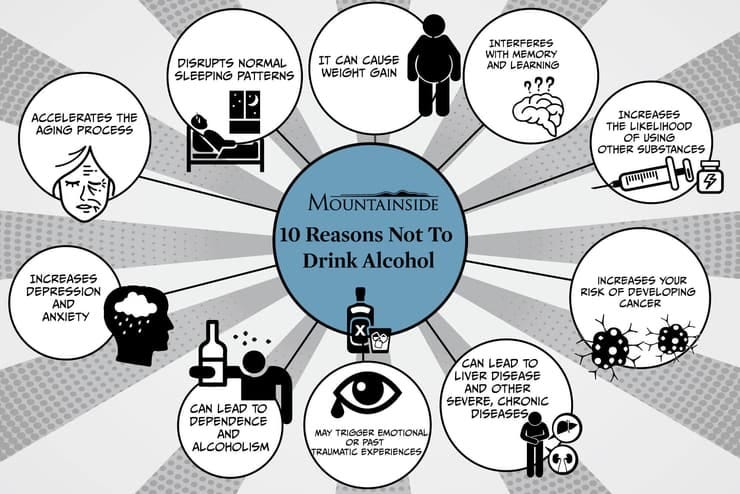
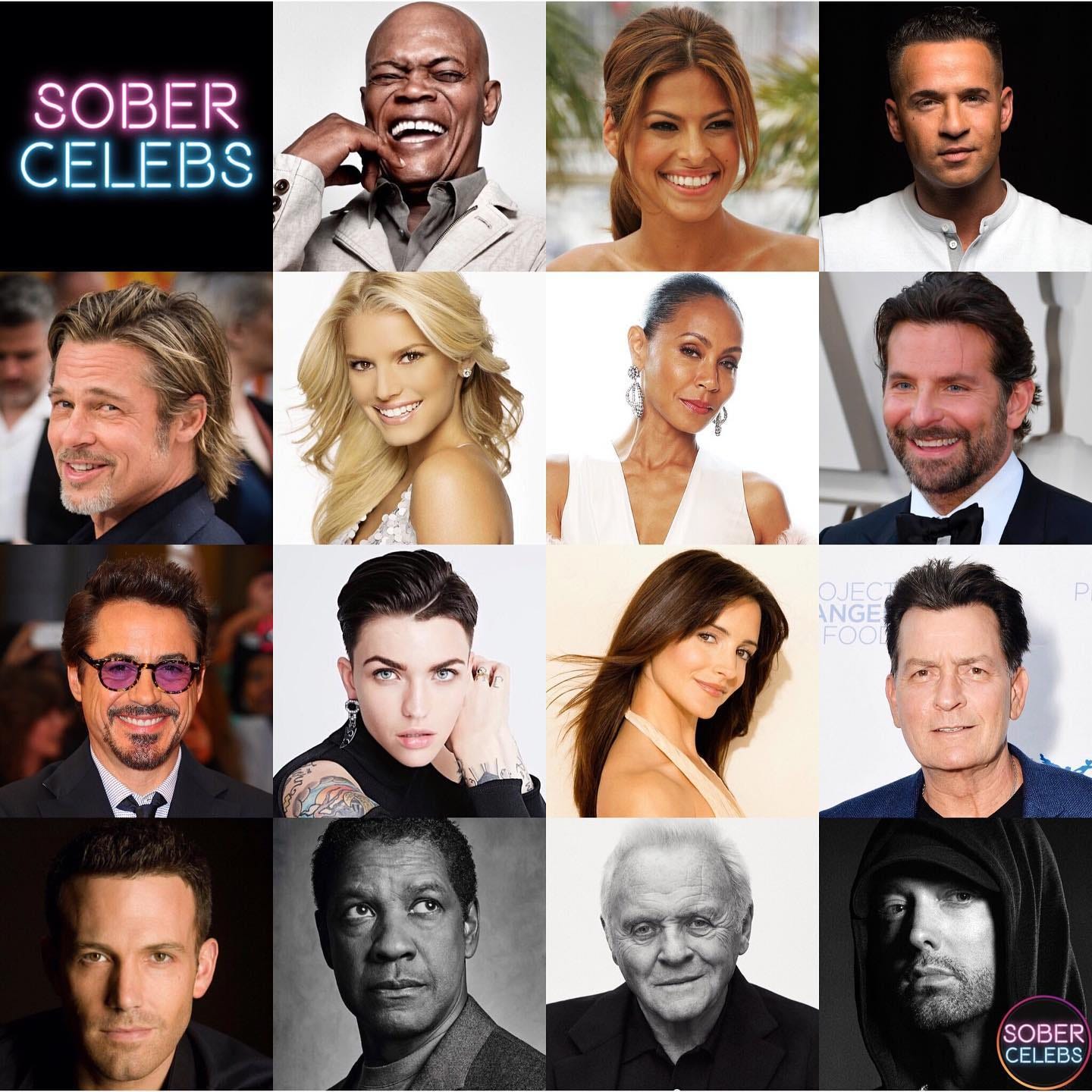
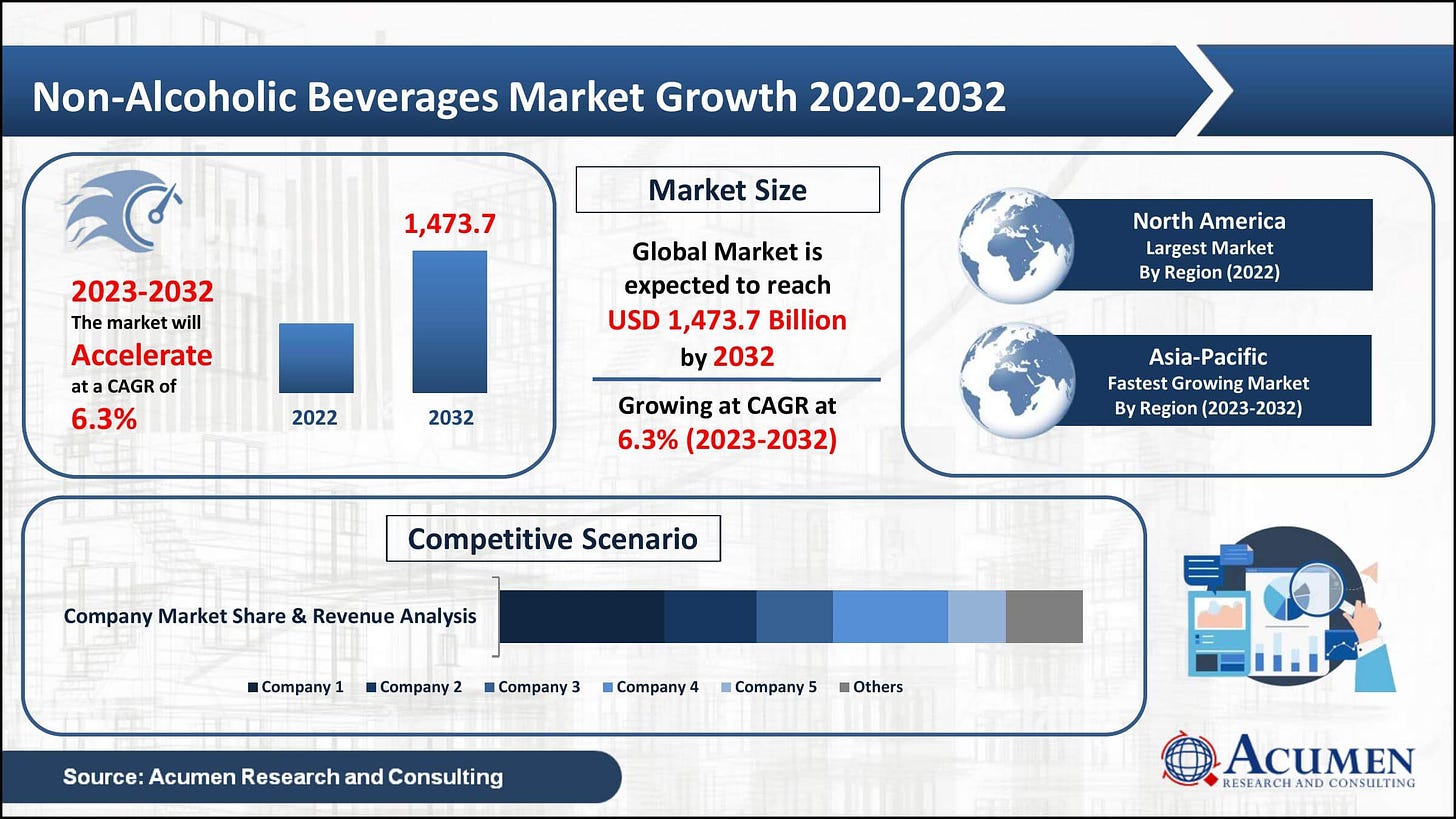
I’m loving living alcohol free. I recently found zero proof liquor where they have added vitamins and amino acids! Not something I have daily but I’m now prepared if I have a party and want to have something other than sparkling water. 🥂
I love this and all the tips, I find it hardest when there is a toast being made (I've gotten reprimanded for toasting with water) but otherwise it feels normal now not to drink!